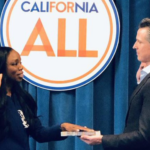Common baby foods from major US manufacturers are likely to contain lead, arsenic, cadmium, and mercury, reports a new study. The research singled out these heavy metals because they are neurotoxins, meaning they can damage babies’ brain development. The study resulted in a list of baby and toddler foods that parents and caregivers should avoid.
The study, conducted by the nonprofit organization Healthy Babies Bright Futures, tested 168 baby food products from US companies, and found that 95% contained lead, 75% contained cadmium, 73% contained arsenic, and 32% contained mercury. One in five of the foods tested contained over 10 times the amount of lead deemed acceptable by public health advocates.
Which foods were the worst offenders? Puff snacks and rice cereal marketed for babies—and often used as an infant’s first solid food—contained some of the highest levels of arsenic. Arsenic is a toxic metal which occurs naturally in soil and water, but can cause lower IQs in children when exposure is too high. Since rice absorbs more water than other grains, it is more likely to contain arsenic.
So instead of the popular rice-based snacks and cereals, the researchers recommend serving babies and toddlers oatmeal, multigrain cereals, rice-free packaged snacks, and other healthy snacks such as fruit, unsweetened applesauce, barley with diced vegetables, hard-boiled eggs, and yogurt.
Another baby food to avoid, according to the research, is teething biscuits, which can contain arsenic, lead, and cadmium. Lead is a well-known danger to young brains, and cadmium exposure has also been shown to put kids at greater risk for learning disabilities. Healthier alternatives to consider for teething babies and toddlers include frozen bananas, peeled and chilled cucumber, or a cold washcloth or spoon.
The report also warns against apple juice, grape juice, pear juice, and other fruit juices, which can contain lead and arsenic. The researchers recommend that juice not be your child’s go-to drink—and instead to mostly stick with water and milk. This falls in line with experts’ new guidelines for what kids should drink from ages 0 to 5.
Lastly, the research calls out sweet potato and carrot based baby foods because they are more likely to contain lead and cadmium than other common vegetables. Sweet potatoes and carrots are still great sources of vitamins, so you don’t have to cross them off the list entirely, but make sure your baby or toddler is being offered many other types of vegetables throughout the week.







